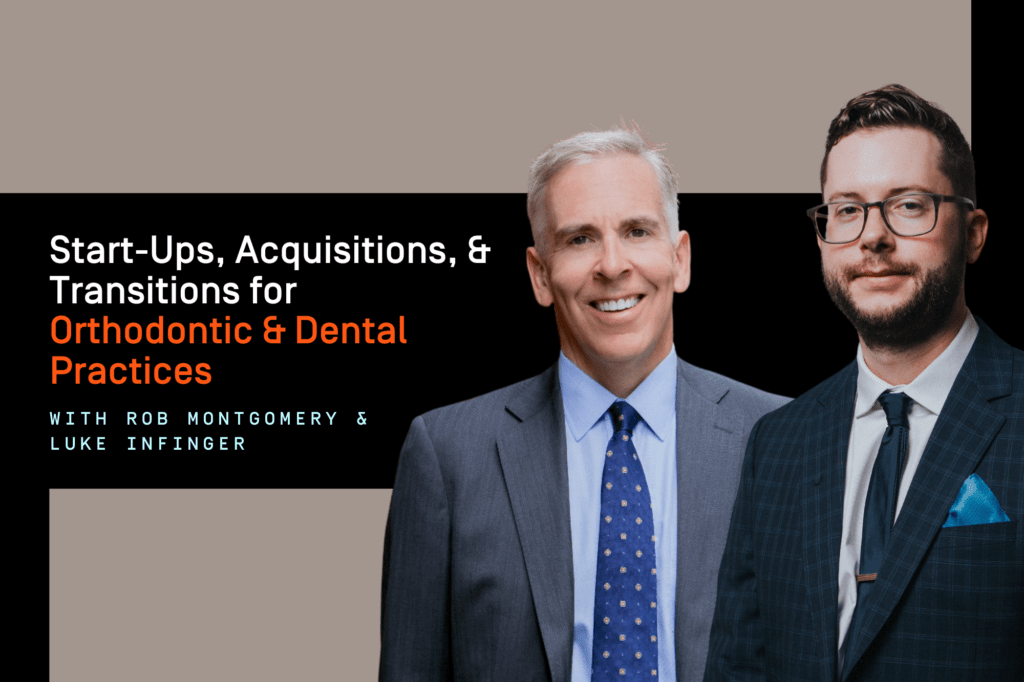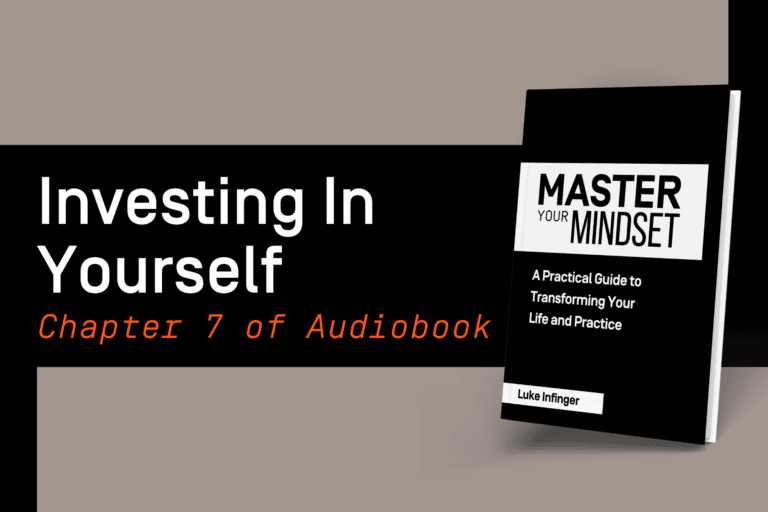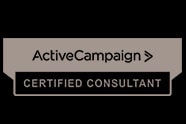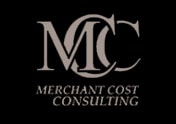Subscribe: RSS
We’re happy to have you back for another episode of the GrowOrtho podcast. Today’s episode features a conversation with Robert Montgomery.
Rob is the founder of the law firm of Robert H. Montgomery III, Esquire, P.C. He and his team focus exclusively on the healthcare space—about 90% of his firm’s 25-year history has focused on helping dentists and orthodontists with “non-litigation” components of owning and operating a business, such as employment agreements, lease reviews, buy-ins, office expansion, and so on. When he’s not practicing law and supporting his clients, Rob likes to get involved with his favorite activities, which change depending on the time of year. (His current favorite hobby? Open-water swimming.)
Rob’s disclaimer: “We will talk about legal issues today. I want to make sure that everybody understands that this is for informational purposes only, and if you have a legal matter, you should seek the specific advice of a lawyer for your specific circumstance.”
Today’s show notes cover the following topics:
- How to find the right opportunity to purchase a dental or orthodontic practice (and how to give it the best chance for growth)
- How you can get bumped “to the front of the line” as a potential buyer in a seller’s market
- One thing you SHOULDN’T do when looking to buy a practice
- Why you shouldn’t think about your broker as a part of your team, even if your broker is completely professional and aboveboard
- How to know if you’re overpaying for a practice (and how overpaying may actually be less problematic than underpaying in some cases)
- How business culture and alignment affect the success (or failure) or a business acquisition
- Understanding projected cash flow analysis
- To buy or not to buy: how Rob advises you to answer this question for yourself
- A “somewhat disturbing trend” that Rob and his colleagues have observed over the past few years
Rob begins by stressing the importance of being “an active member in your professional community” when it comes to creating opportunities to purchase practices, adding that the type of practice you want to buy and even your geographic location can also influence your outcomes.
He also points to the benefit of utilizing a “network of brokers” who can help you find listings, particularly if you’re looking to expand into areas where you don’t currently reside or work.
Rob also urges potential buyers to be “more purposeful” in knocking off the background steps—for example, by taking the time to develop good relationships with area banks and get pre-approved—as this will position them as leading candidates among potential buyers. He says this space is “still in a seller’s market,” making this competitive edge a boon for anyone looking to expand their business.
Don’t forget about other professionals in your community, too—everyone from certified public accountants (CPAs) to dental supply reps may “have inventory” of potential sellers to share with you. Better to inquire directly with these individuals rather than simply surf the web, Rob says, since, by the time you see a practice for sale online, there probably are already dozens of other potential buyers looking.
We also discuss the natural concern over a bad deal. In Rob’s expert opinion, the best way to mitigate the risk of getting into a bad deal is to make sure you have two integral professionals on your business acquisition team—your attorney and your CPA (ideally, those with experience in this space specifically).
Can you purchase a practice on your own, business owner to business owner? Sure, Rob says, especially since industry data show us that the rate of defaults for these businesses is actually quite low. The caveat: “Not defaulting is very different from thriving.”
Rob gives an example: If you DIY a practice acquisition to the tune of $1 million and one year later find that your practice is only worth $600,000, you probably won’t default on your loan—but you also probably aren’t very happy with your investment, either.
It’s far better, Rob advises, to consult with people who can provide as good of counsel as possible to maximize your chances of the success you’re hoping for. Creating a great team is especially helpful for ensuring that you have a reasonable idea of what your expected cash flow will be. How much money can you expect to earn in the long run from buying or buying into X business? A great lawyer and CPA can help you answer that with confidence.
“At the end of the day,” Rob says, “whether you paid the right number or not, [it] doesn’t matter if you’re not making enough money.”
Rob offers his insight on many more topics in this episode, including projected cash flow analyses (which are driven by assessments of a business’s last three years of performance to help you anticipate future earnings), how to navigate the timing of pursuing a deal in today’s environment, scaling businesses, the pros and cons of mixing clinical specialties, and what he believes are key indicators of entrepreneurial success.
He also gives a final word of caution to younger associates who are offered equity buy-ins as part of a big corporate group: “If you’re not going to ultimately be able to buy the practice outright… you really have to be careful… because in a lot of respects those deals are often structured in a very predatory way,” he says, citing examples such as clauses that limit an associate’s future earning potential or even their rights to practice elsewhere.
To connect with Rob and his firm, be sure to visit yourdentallawyer.com.










